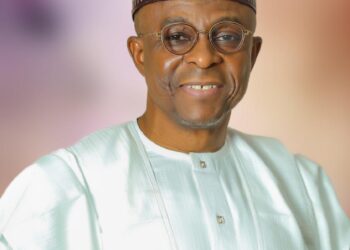Come November, 2009, Nigeria will be filing out again to vie for retention of the Category ‘C’ council seat of the International Maritime Organisation (IMO) which she won in 2007.
Already, and as was done in 2007, government has raised two committees to strategise to ensure that the nation’s aspirations are not thwarted. And like in 2007, the arrow-heads are the chief executives of agencies under the transport ministry as well as technocrats. The team also include some stakeholders.
To emerge victorious, Nigeria garnered 87 votes to beat Liberia which got 74 votes and Angola which scored 42 votes. Ghana was the first to step down for Nigeria. Nigeria also beat Bulgaria, Iran, Kuwait, Ukraine and Poland to clinch the seat.
Prior to the 2007 meeting and Nigeria’s subsequent election, all members of the lobby team gave their best to the campaign to get the country back on the list. Ordinarily, these are agencies which under normal circumstances would not have cared a hoot whether or not we made the list. They probably would have seen it as a purely NIMASA problem. They were all part of the team that toured different parts of the continent to solicit for the support of sister African nations
All those (from the minister of transport to the heads of various agencies).who performed the 2007 miracle of getting Nigeria into Category “C” Council seat of the International Maritime Organisation deserve commendation;
By the 2007 election, Nigeria became one of the 40 nations that have been sitting over the maritime fortunes of the 167-member nation IMO; an organization that regulates global maritime affairs.
Talking about the 2007 elections into the council, the defeat of Liberia was the sweetest, because it was the only country in West Africa that rebuffed all entreaties that it should step down for Nigeria. Liberia contested and lost, while Ghana backed Nigeria all the way. It would have been irreparably painful and shameful if Liberia had clinched that seat at the expense of Nigeria. Ghana only requested that Nigeria should back her at the expiration of the latter’s two terms.
While commenting on the 2007 elections, this paper had cautioned that Nigeria should not be carried away by the prestige of being a Category ‘C’ council member of the IMO, even as it advised that both the Nigerian Maritime Administration and Safety Agency (NIMASA) and the supervising ministry of transportation should ensure that Nigeria draws some advantages from her membership of the council. The advice had come against the backdrop of opinion of a cross section of members of the shipping community who argued that there is really not much benefits attached to the IMO Category ‘C’ seat.
We had stressed that being a member of a council where the likes of United States of America, United Kingdom, Bahamas, Australia, Chile, Indonesia, Singapore, Denmark, Philippines, Saudi Arabia and so many others can not be merely for national pride. Even the category ‘C’ council which has countries like lost could not have been a jamboree.
We had also advised that rather than sit pretty in the council expecting to be pampered, Nigeria’s representative at the IMO and indeed the Nigerian Maritime Administration and Safety Agency should seize the opportunity or the nation’s return to the elite Council to network for the nation’s maritime industry.
Nigeria has been sitting with the likes of United States of America, United Kingdom, Japan, Norway, Panama, Greece, Russia, China and Italy, Brazil, Canada, France, Netherlands, Bangladesh, Germany and Spain (all members of the 40-member council for close to two years.
We think it is high time we took stock of what the country has gained since her celebrated victory; perhaps this can guide our quest for a second term.
In his first media interaction shortly after winning the 2007
elections, the director general, NIMASA, Dr Ade Dosunmu told media men that the desire of Nigeria was not to hurriedly climb from category ‘C’ to category ‘B’ of the elite council.
But surprisingly, at inauguration of the two committees that will work on getting Nigeria re-elected into the council, the minister reportedly charged them with another task of working towards stepping up to category ‘C’ by 2011 when Nigeria would have finished her second term.
Depending on who is carrying out the assessment, Nigeria’s membership of the IMO Council ought to positively impact on NIMASA’s performances as the nation’s apex regulatory agency; especially in areas like maritime safety, enhancement of indigenous fleet capacity and employment of seafarers, among others.
While not submitting that Nigeria’s membership of the IMO has attracted any benefits, we are appalled that the nation’s maritime technocrats (against all advice) have not taken maximum advantage of her IMO status.
We subscribe to the second term ambition, first as a Nigerian media organisation and second, with a conviction that we should use the second opportunity to address those fundamental issues that our technocrats did not take seriously.
Our membership should not be a status symbol, but an opportunity to have a slice of world opportunities; opportunities that will impact glaringly on our national fleet, our seafarers’ employment ratio and will engender a more proactive approach to maritime safety and security issues. If the IMO Secretary General, Mr Efthmious Mitropolous could come to commission the Regional Maritime Rescue Coordination Centre, then the centre must not only epitomise safe and secure shipping, it must also be worth our while.
Sesan Onileimo (FNIS)
















Discussion about this post